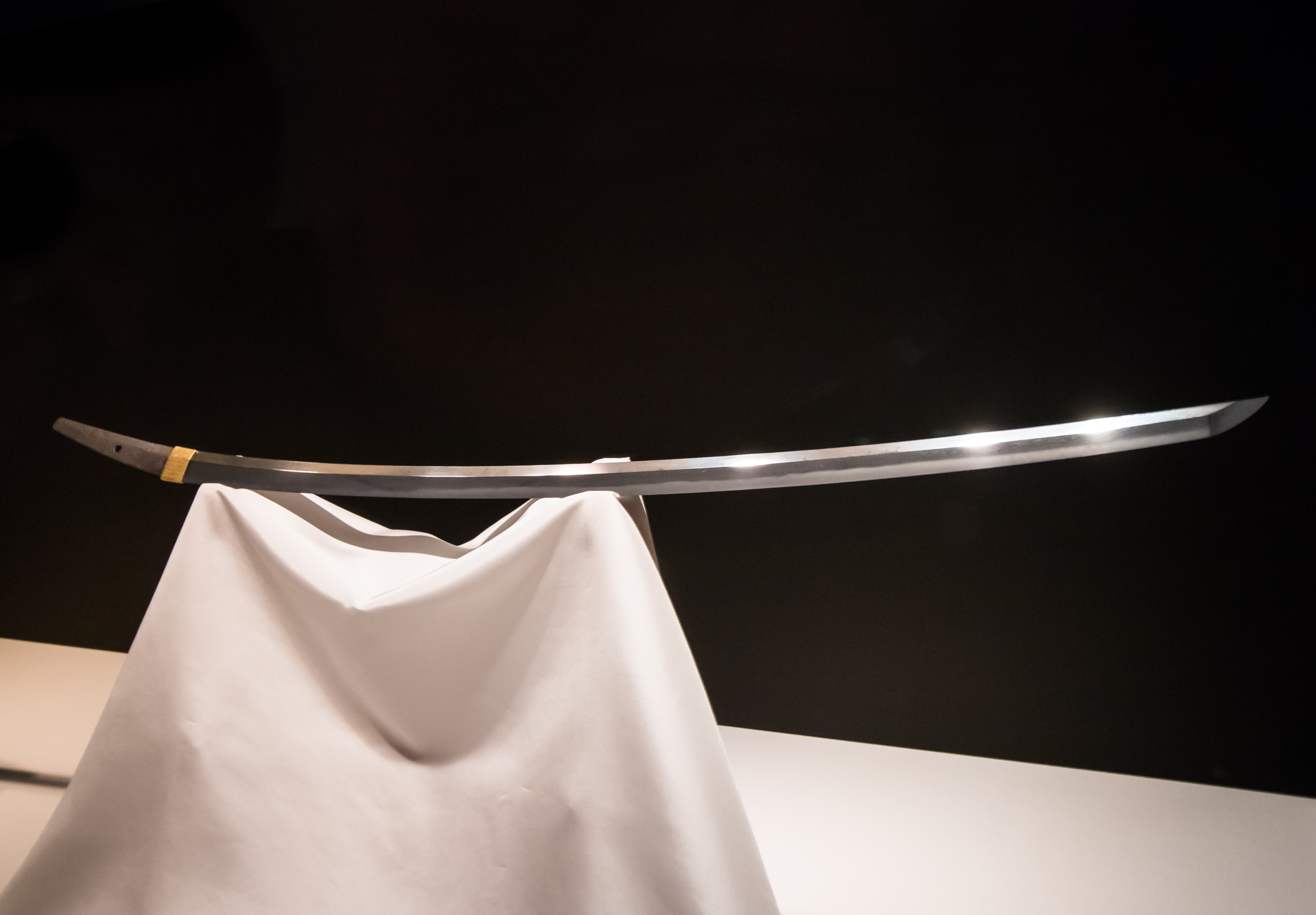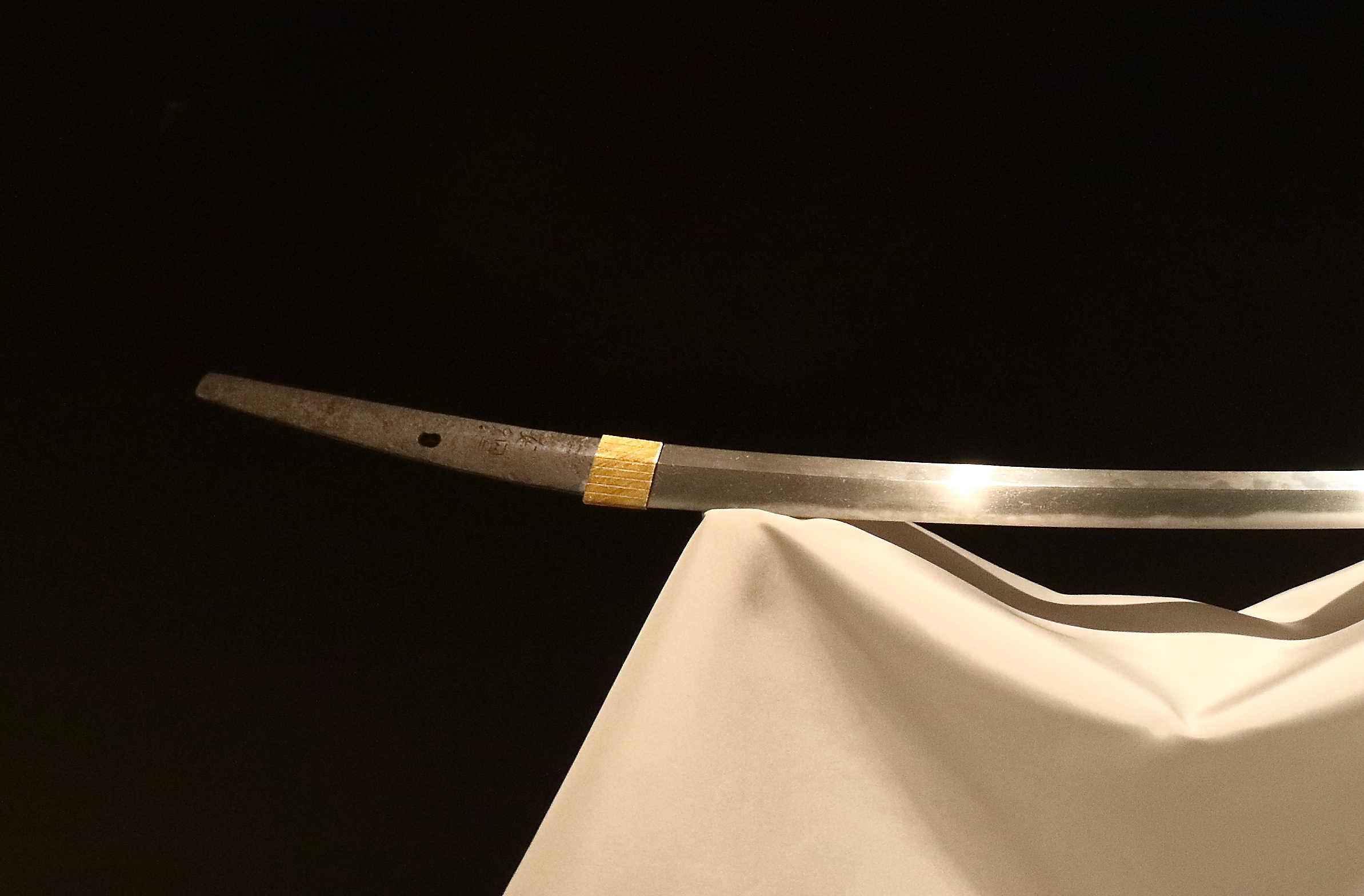Dōjigiri on:
[Wikipedia]
[Google]
[Amazon]
 Dōjigiri (童子切, "Slayer of Shuten-dōji") is a ''
Dōjigiri (童子切, "Slayer of Shuten-dōji") is a ''

 Dōjigiri (童子切, "Slayer of Shuten-dōji") is a ''
Dōjigiri (童子切, "Slayer of Shuten-dōji") is a ''tachi
A is a type of traditionally made Japanese sword (''nihonto'') worn by the samurai class of feudal Japan. ''Tachi'' and '' katana'' generally differ in length, degree of curvature, and how they were worn when sheathed, the latter depending o ...
''-type Japanese sword
A is one of several types of traditionally made swords from Japan. Bronze swords were made as early as the Yayoi period (1000 BC – 300 AD), though most people generally refer to the curved blades made from the Heian period (794 – 1185) to th ...
that has been identified as a National Treasure of Japan. This sword is one of the "Five Swords Under Heaven" (天下五剣 Tenka-Goken).
Dōjigiri is sometimes called "the yokozuna
, or , is the top division of the six divisions of professional sumo. Its size is fixed at 42 wrestlers (''rikishi''), ordered into five ranks according to their ability as defined by their performance in previous tournaments.
This is the on ...
of all Japanese swords" along with Ōkanehira ( :ja:大包平) because of its perfection; it is of great historical value as one of the oldest extant katana
A is a Japanese sword characterized by a curved, single-edged blade with a circular or squared guard and long grip to accommodate two hands. Developed later than the ''tachi'', it was used by samurai in feudal Japan and worn with the edge fa ...
-type weapons. The quality and the artistic value of the blade is exquisite, it has been kept in good preservation, and the legend tied to the sword is notable.
Anatomy
The present mounts of the Dojigiri are fine examples of Momoyama-period work in itomaki no tachi style, in which the typical wrapping of the hilt continues along part of the scabbard. The scabbard is decorated in gold nashiji (gold flakes suspended in transparent lacquer) and the metal fittings are of shakudo (a blue-black alloy of copper with a small percentage of gold) worked with a nanako (granulated) ground and bearing the imperial paulownia mon (family badge or crest) in gilt. It is perhaps the most celebrated of all Japanese swords.
History
Dōjigiri was presented toOda Nobunaga
was a Japanese '' daimyō'' and one of the leading figures of the Sengoku period. He is regarded as the first "Great Unifier" of Japan.
Nobunaga was head of the very powerful Oda clan, and launched a war against other ''daimyō'' to unif ...
, the leading late sixteenth century general (1534-82), by the Ashikaga family. Subsequently it was the property, in turn, of Toyotomi Hideyoshi
, otherwise known as and , was a Japanese samurai and '' daimyō'' ( feudal lord) of the late Sengoku period regarded as the second "Great Unifier" of Japan.Richard Holmes, The World Atlas of Warfare: Military Innovations that Changed the C ...
and Tokugawa Ieyasu
was the founder and first ''shōgun'' of the Tokugawa Shogunate of Japan, which ruled Japan from 1603 until the Meiji Restoration in 1868. He was one of the three "Great Unifiers" of Japan, along with his former lord Oda Nobunaga and fel ...
. The second Tokugawa shogun, Hidetada, bestowed it on the daimyo Matsudaira Tadanao (1595-1650) of Echizen. After the disgrace and dispossession of the Echizen Matsudaira occasioned by some irregular conduct on the part of Tadanao, the blade passed to the Tsuyama branch of the family.
Legends
The ''Kyōhō Era
, also pronounced Kyōho, was a after '' Shōtoku'' and before '' Gembun.'' This period spanned the years from July 1716 through April 1736. The reigning emperors were and .
Change of era
* 1716 : The era name of ''Kyōhō'' (meaning "Underg ...
Handbook of Famous Works'' (Japanese: ''Kyōhō meibutsuchō'') records the legend that this sword was used by the great warrior Minamoto Yorimitsu to bring down the monstrous Shuten Dōji of Mt. Ôe in Tanba, thus earning the epithet of "Dôji-slaying Yasutsuna" (Japanese: ''Dôjigiri Yasutsuna''). The legend of the Shuten Dôji — either a demon or a highwayman — is thought to date to the Muromachi period (1392–1573).
See also
* List of National Treasures of Japan (crafts-swords) *Japanese sword
A is one of several types of traditionally made swords from Japan. Bronze swords were made as early as the Yayoi period (1000 BC – 300 AD), though most people generally refer to the curved blades made from the Heian period (794 – 1185) to th ...
References
{{reflist __FORCETOC__ National Treasures of Japan